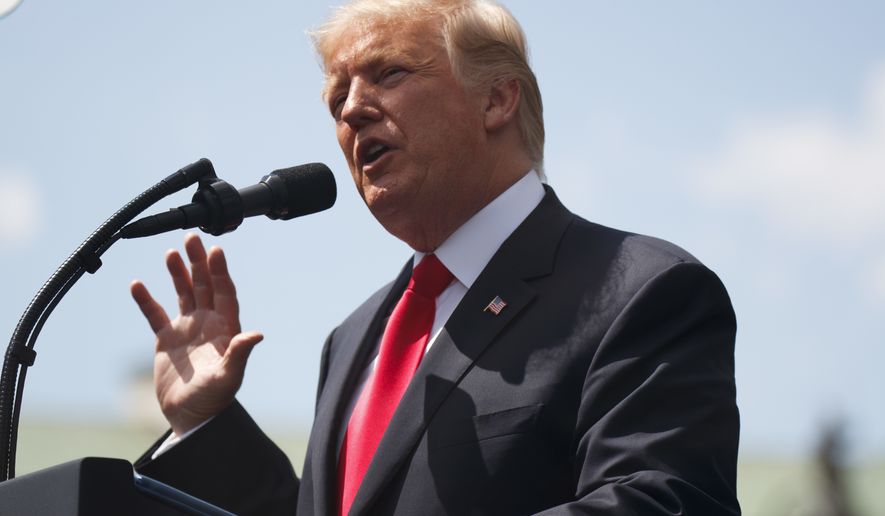President Trump’s voter integrity commission has “no legal authority” to collect information from states about their voter rolls, a privacy group said in a new court filing Thursday, escalating a legal clash with the panel.
The Electronic Privacy Information Center, which has filed an emergency lawsuit to try to derail the Trump commission, says that it doesn’t matter what sort of information states will allow, the mere act of the panel requesting data, without having safeguards in place, violates federal privacy and electronic records laws.
Some state election officials across the country have said they’ll resist the commission’s data sweep on principle. But EPIC’s lawsuit goes straight to practical matters, saying that the commission isn’t set up to collect and hold the trove of sensitive information — including names, dates of birth, election voting history and perhaps even Social Security numbers — that the commission is seeking.
“It does not matter that a particular state might disclose its voter data to some other requester under some other circumstances: this requester — the Commission — is barred by law from gathering this data without sufficient constitutional and statutory privacy safeguards,” EPIC said in a court filing.
EPIC has sued in federal court in Washington, looking for an emergency halt to the commission’s request.
Judge Collen Kollar-Kotelly is speeding the case along, and appears to be focused on whether the commission needs to abide by all the usual federal record-keeping and privacy laws.
The commission’s lawyer said this week that because the commission is an advisory panel to Mr. Trump, rather than a regulatory agency, it is freed from many of the shackles that constrain other parts of government.
Commission Vice Chairman Kris W. Kobach has requested states turn over voter names, dates of birth, vote history, information about felony convictions or military service, and even partial Social Security numbers. But he says he only wants information states already make public, so states that don’t release Social Security numbers — which is nearly all of them — would not provide that information.
More than a dozen state elections officials have balked anyway, saying that even though they sell the data openly to most requesters, they want to try to keep it out of the hands of Mr. Trump’s commission.
The commission argued in court papers this week that there’s no right to “informational privacy,” so there’s no intrusion by the panel asking for the information.
• Stephen Dinan can be reached at sdinan@washingtontimes.com.




Please read our comment policy before commenting.